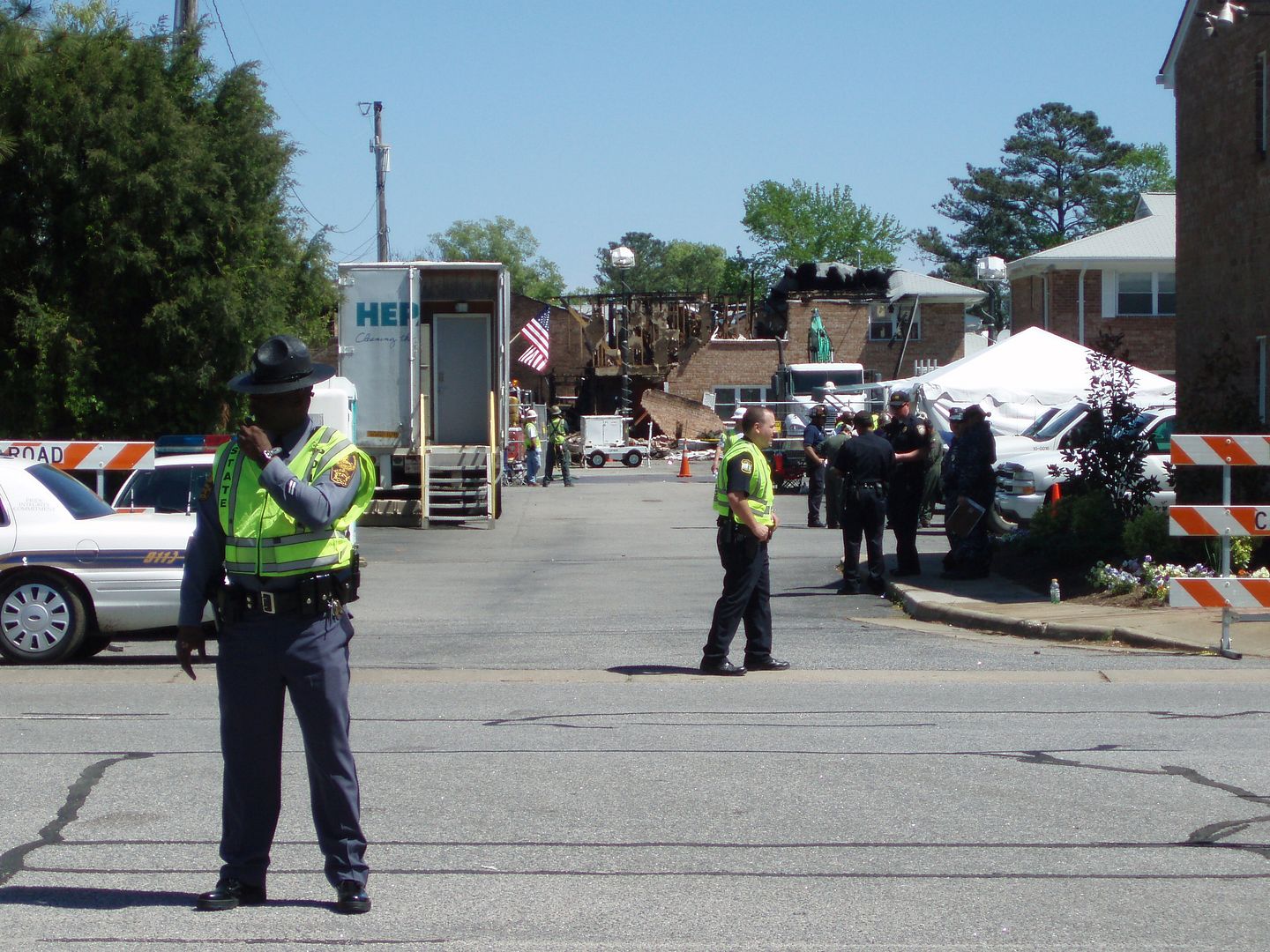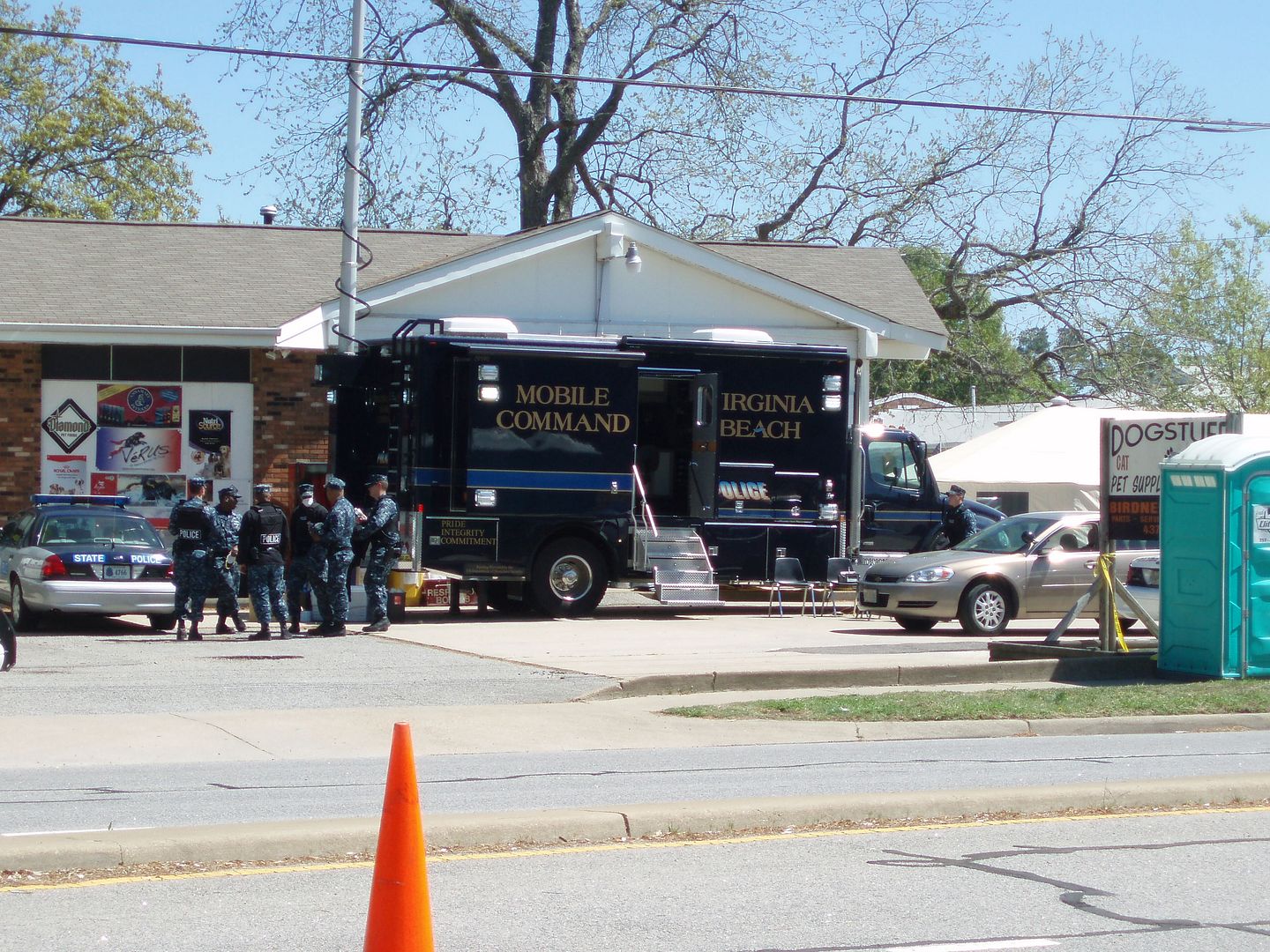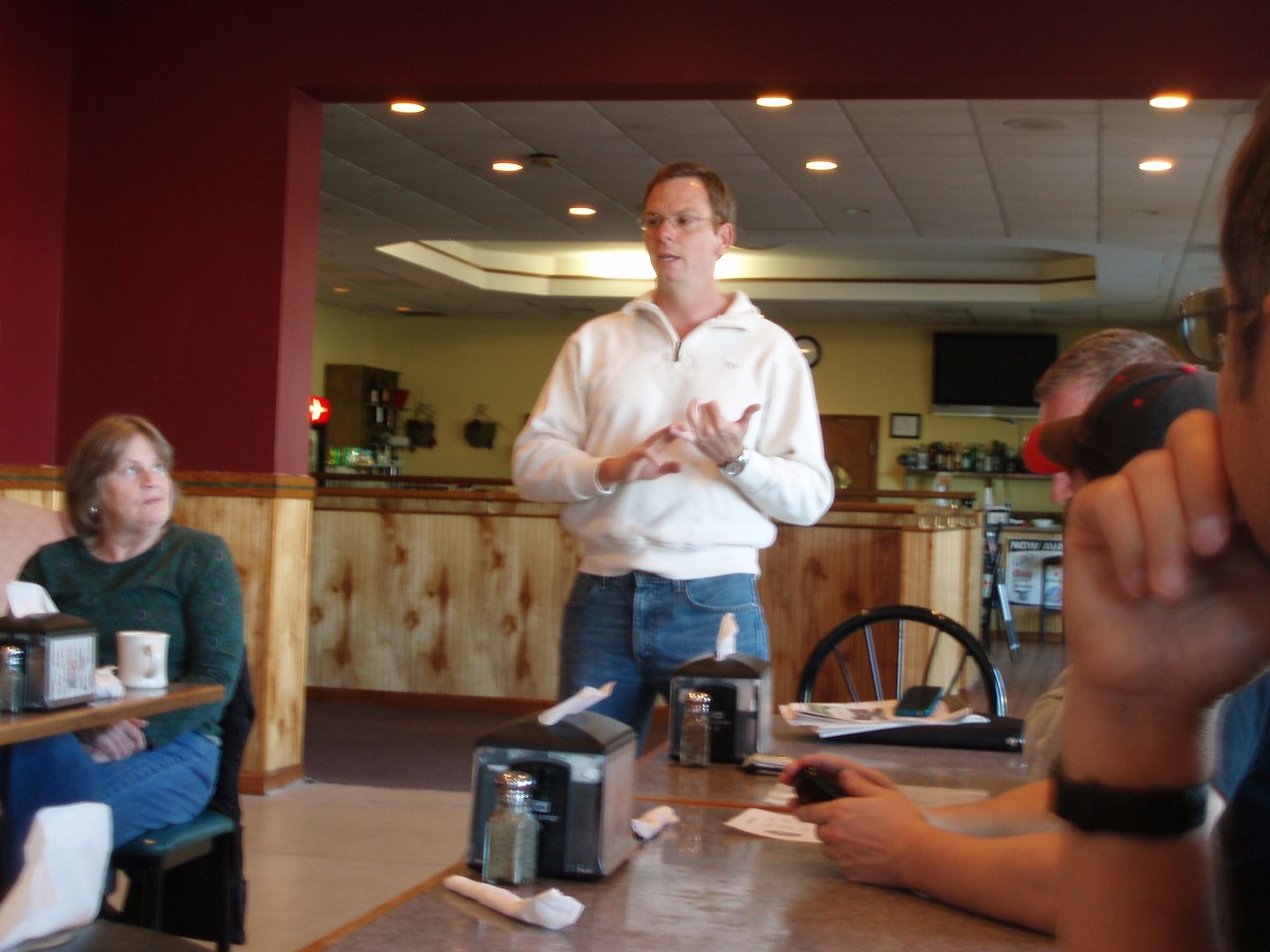 Virginia Beach’s Miracle at 24th Street has turned into something of a celebration. But it uncovered local and national friction points thought resolved by most. It opened a window on the readiness of the local government to respond and the character of many of the local leaders.
Virginia Beach’s Miracle at 24th Street has turned into something of a celebration. But it uncovered local and national friction points thought resolved by most. It opened a window on the readiness of the local government to respond and the character of many of the local leaders.
Make no mistake, the amazing efforts of first responders, fire, police, and Emergency Medical Services, frame this event. Yesterday City Councilman Bill DeSteph was out early passing along the good news. He had been at the site until late Friday evening and he was exuberant as he commended the performance of all involved and the news he had just received that all the residents had been accounted for. He described details of the process he’d observed the prior evening including putting floor wax down at the scene to capture carbon fibers from the wreckage. And he was proud of the community response providing housing and assistance to those displaced.
It’s a combination of miracle and a combination of training and professionalism. You really understand what these people go through and how they’re selected and why they’re selected. It’s situations like this. And that goes for the first responders who run into fire when everyone else is running away. – Mike Imprevento
The navy has indicated a catastrophic mechanical failure may be at issue in this mishap. There could be many other factors such as a bird strike or, less likely, foreign debris on the runway that can cause a structural issue (recall the crash of the Concorde where metal that had fallen off another aircraft caused the catastrophe). It might also be a hydraulic or electrical failure. Yesterday on his local radio program, Mike Imprevento helped provide a broader context to the entire event with guests New York attorney Daniel O. Rose, former naval aviator who practices aviation, maritime, and products liability law and local media personality Joel Rubin.
The F/A-18 has two engines, but the profile is narrow with both engines close to the centerline. So it is not beyond the realm of possibilities that even a small flock of birds could cause both to fail (unlike the engines on the plane Sully Sullenberger piloted into a safe Hudson River crash). The plane is designed to fly on one engine which, as Dan Rose pointed out, begs the question, “Why would you be dumping fuel?” Fluid was seen coming from the aircraft prior to the accident, though the amount of hydraulic fluid in any aircraft argues against what was seen being that, it cannot be ruled out.
One caller was less interested in the tragic event than in pursuing a political agenda:
Imprevento: We have a caller… Jamie? Hello?
Jamie: Hello?
Imprevento: Jamie do you have a question?
Jamie: Yeah, I’m wondering, with the President Obama’s $200 million defense cuts, how much of a play did that come into inferior possible…
Imprevento: (hanging up) None! Thanks for your call…You see, Dan, occasionally we get these kinds of people.
Dan: I thought we only had them in New York.
The pilots had little time to react, decide, and respond to whatever happened after take-off. The runway is less than three miles from the crash site; take-off probably occurred at 140 knots (170 mph), so do the math: it was over in a couple of minutes or less at very low altitude. And it is not as though there weren’t flashing lights and alarms going off simultaneously telling them to abandon the aircraft. All the time they were weighing the consequences of the aircraft failure. They are trained to avoid civilian casualties. But there is, after all, a point at which the pilots must depart the craft to have any hope of survival themselves.
That’s another thing I wanted to talk to you about, Dan, because I think you have a technical understanding of this. Miraculously, these people came down, one of them was still in his seat, the other in the parachute had apparently detached from the seat. These are low altitude ejections. I know the technology of ejection seats may or may not have progressed from when you flew with an ejection seat in a jet in the ’90s, but talk to us about how violent an event that is. We had one of the pilots, just went through a loss of power, just went through an ejection at who knows how many G’s, hits the ground, full of blood, turned to a citizen, two citizens witnessed this, “I’m sorry that I destroyed your home.” Who are these people Dan? I mean, this kind of person, this kind of human being, I’m sitting here just flabbergasted that they had the presence of mind and not to be panicking.” – Mike Imprevento
Then you have to ask: What does this mean for the future of jets stationed in the community? The flight safety record over the past four decades is impressive. We have been fortunate over the years to have not had more incidents like this one (1986 and 1990 are the recent local exceptions.) The region’s partnership with the navy is longstanding, so it is hard to imagine this incident changing that on its own. But it is not on its own. The navy has been considering the viability of Oceana Naval Air Station (NAS) for years and the fact is that the city of Virginia Beach has not always held up its part of the partnership. The possibility does exist that the navy will write a check to settle this mishap and that that will be a parting gift as the facility is closed. The navy may prefer a location with less population density.
There are many locales that want the jets that are stationed at NAS Oceana. During the base realignment and closure (BRAC) process, a number of communities lined up volunteering locations for a base replacement. There are plenty of Governors and Representatives with greater savvy, seniority and experience than ours who are standing ready take the more mitigated risks.
Fortunately, no other obvious location offers the proximity to the fleet or the infrastructure for families that is Virginia Beach. Not to mention the base infrastructure, at a time when military budgets are going to be lean for the foreseeable future. There is no stomach for recommending capital improvements. But there is the prospect of another BRAC in 2013.
Joel Rubin outlined the situation during the last BRAC:
Jacksonville, Florida hired the right people with the right connections (including Admiral Natter) and who really understood the navy’s mission to lobby their case to move assets to Cecil Field. It was fairly clear even at the time that Virginia was unprepared to present a case for maintaining the base here. Then Governor Mark Warner and Mayor Meyera Oberndorf could not seem to agree who would lead the effort and there was no substantial case developed to present in defense of maintaining the jets in Virginia Beach.
The BRAC commission ultimately decided that the jets would move to Cecil Field unless we did certain things to stop that. You recall there was a piece of land over off Laskin Road that had been rezoned for commercial use and that seemed to be a decision by the city of Virginia Beach that really was jeopardizing Oceana. So there was this emergency meeting held of the Virginia Beach City Council and they immediately came up with seven and a half million dollars or something…maybe more than that to buy this piece of property back from the landowners. And it was like “You got to do this or you are going to lose Oceana.” Then ultimately the state and the city agreed to each spend seven and a half million dollars a year buying up more land around the base…ultimately it worked because Jacksonville didn’t want the jets. But others do.
 Back to more immediate consequences. According to Virginia Beach Fire Chief Riley, some 63 people were displaced. There are long term housing needs, health services, and claims assistance requirements. The navy is providing an initial two weeks housing allowance and per diem. There are physicians and nurses working to help replace prescription medicines lost in the fire. Many of the services are being provided at the Law Enforcement Training Center which just happens to be less than a mile away on Birdneck.
Back to more immediate consequences. According to Virginia Beach Fire Chief Riley, some 63 people were displaced. There are long term housing needs, health services, and claims assistance requirements. The navy is providing an initial two weeks housing allowance and per diem. There are physicians and nurses working to help replace prescription medicines lost in the fire. Many of the services are being provided at the Law Enforcement Training Center which just happens to be less than a mile away on Birdneck.
The Federal Tort Claims Act and the Military Claims Act come into play. The government has waived sovereign immunity in situations like this. The government will pay damage claims that are reasonably made. Claims are submitted on what is known as a Standard Form 95 (SF-95). Claimants have two years to file the claims. The armed forces have a system and process to make these claims good and in this case it claims will likely be expedited. Claims are part of doing business in the military both domestically and internationally.
The claims must be filled out accurately. If in the event the navy hasn’t adjudicated it to the claimant’s satisfaction within six months, the claim goes to Federal Court. The claim must be made in good faith and for the appropriate amount of the loss.
Mr. Imprevento has offered to assist anyone with questions about a claim, pro bono. His firm’s number is: 757-622-6000

Like any event that provides photo opportunities, the crash scene drew a crowd. Bill DeSteph was no doubt there for the right reasons. It happens that I have been around Bill during less visible events that affected citizens on a personal level as significantly as this one. In those cases, for whatever reason, the only council member answering the phone seemed to be Bill and he never refused calls no matter the area of Virginia Beach where the caller resided. Virginia Beach’s strange process for electing councilmembers, allowing everyone in the city to vote for everyone’s member puts distance between residents and their supposed local representatives.
There were a lot of Good Friday Samaritans that have gone without mention. Turns out that the Farm Fresh supermarket chain has a protocol in disaster situations that is addressed in management training. Sam Davis, the store director of the Laskin Road store explained that his store responded to this one by providing a package designed for this specific situation. It contained about 400 bottles of water, 300 bottles of Gatorade and enough product to make 250 to 350 sandwiches. Interestingly, this came to Imprevento’s attention through a first responder who called in to give a shout out, not from a Farm Fresh press release.
There will certainly be more fallout coming from this mishap. But for now it seems to be the best of what might have been a terrible catastrophe.

![[UPDATED with Official Announcement] Audio: VA Del. Dan Helmer Says He’s Running for Congress in the Newly Drawn VA07, Has “the endorsement of 40 [House of Delegates] colleagues”](https://bluevirginia.us/wp-content/uploads/2026/02/helmermontage.jpg)
















